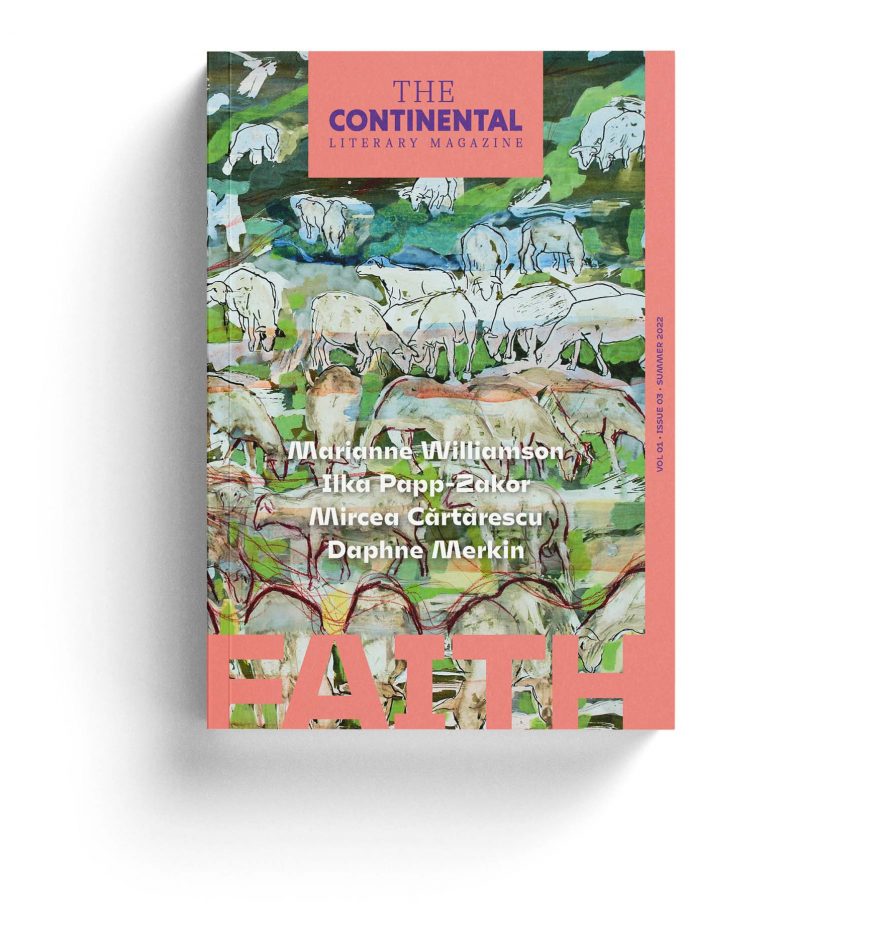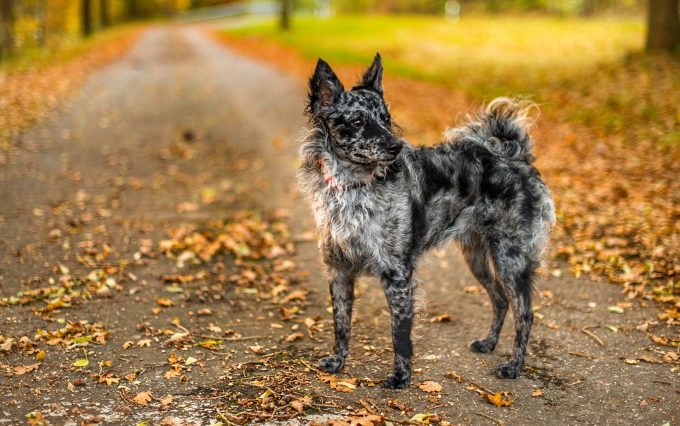
4th November 2022
Fiction
5 minutes read
The Joke
translated by Tímea Sipos

4th November 2022
5 minutes read
Dragon II was a good dog, especially in comparison to Dragon, whom, in a sense, he came from. The grandchildren, Karcsi and Panni, liked when he was with them. They’d give him commands so endless, it seemed they didn’t believe he could fulfill any of them. “Or,” thought Öcsi, “maybe they don’t get that he’s here, in their corner, an arm’s reach away, and it’s going to stay that way.”
From the very beginning, Öcsi was adamant they spend the majority of their free time outside so that the little ones might soak up as much as they could of the laws of nature. The dog was meant to be the link between their indoor and outdoor lives—the animal whose regular walks provided a convenient excuse for frequent excursions. Dragon had been a Hungarian herding dog, a Mudi, unmanageable and endlessly cagey, and when he sensed danger, he’d bite; meanwhile, like someone uncertain of themselves, he’d timidly wag his flag-like tail. The children were the ones who had given him the name Dragon when they watched him yawn for the first time: behind that sharp barbed wire of lower little teeth, inside those black cheeks, a pink tongue rose and curled like a flame come to life. Karcsi and Panni had been attached to Dragon, even if they’d been afraid of him from time to time.
One weekend, in one of the city’s parks,
Dragon had found some invisible, hidden enemy and ran away in fear.
They called after him and searched in vain among the rose bushes, which were in bloom. That day, Öcsi posted Dragon’s picture on Facebook along with the exact place where he ran away. He then called animal control and the pound and waited to hear back. Soon enough, not one but at least five people contacted him about various dog sightings that more or less matched Dragon’s description. None of the dogs were Dragon, but Öcsi chose one anyway, the one that least resembled a Mudi, shale-gray, with a round face and a long, gentle stare.
“We found your dog,” he said to the children, and Gitta was quick to add that, while Dragon II was in the strictest sense not the same as Dragon, the dog had been sent by their last dog as his replacement, so history’s continuity had been preserved.
Dragon II was an obedient, respectable house pet
whose tongue did not rise like a flame in his yawning mouth. Öcsi could not see why their old shitty dog would pick such a perfect companion in his place, and yet he still felt that Dragon II had his forefather’s dark nature hiding somewhere deep inside him, just waiting for the right moment to appear.
From then on, they’d take Dragon II with them on their visits to the city’s outdoor attractions. Dragon II, when called, would dash over at once, but Karcsi and Panni repeated his name again and again anyway. If it were up to them, they’d never let him off the leash.
“Keep an eye out. As long as you have an eye on him, you can leave him be,” Öcsi would say. “He distracts you. He distracts you from everything else,” he complained. Yet he didn’t want to stifle them. Neither he nor Gitta forced their ideas on the little ones; instead, they were happy that, in spite of the siblings’ frequent squabbles, their bond was strong. (Of course, it sometimes happened that Karcsi would hide his little sister’s stuffed bunny, and when he did, Panni would yell, “You know he loves me more!” or when Panni tried playing with her brother’s microscope: “Don’t you dare touch it, or your back will get hairy, you’ll grow a hunch, and your teeth will fall out!” he threatened while Öcsi shook his head in the background, wondering where they got all this nonsense from.) Perhaps it was the walks in nature that forged their close bond. During these times, Panni would hold the leash, and Karcsi would lead her by hand, or, almost like an adult, he’d lay his hand over her shoulder. By doing so, he kept his eye on the dog, too.
Dragon II was sometimes on the other end of the leash, sometimes not. If he wasn’t there, the children would encourage each other.
“Oh no, he’s so far!”
“Should I call him?”
“Let’s.”
“Dragon! Come here! Now!”
After hikes, Dragon would often have strange plants caught in his fur, which, per Öcsi’s request, they would extract, identify, and press. Their grandfather encouraged them to put in their pockets anything they found interesting along the way. Once, Karcsi even found a fox foot—based on all signs, severed at the joint—and, before throwing it away, Öcsi talked at length about the food chain, apex predators, natural enemies, shorter life spans, and finally—as a curiosity—that our ancestors would gladly keep a dried-out fox leg around at home, because they were thought to bring luck.
“That’s rabbit foot,” giggled Gitta, and petted her husband’s smart head.







